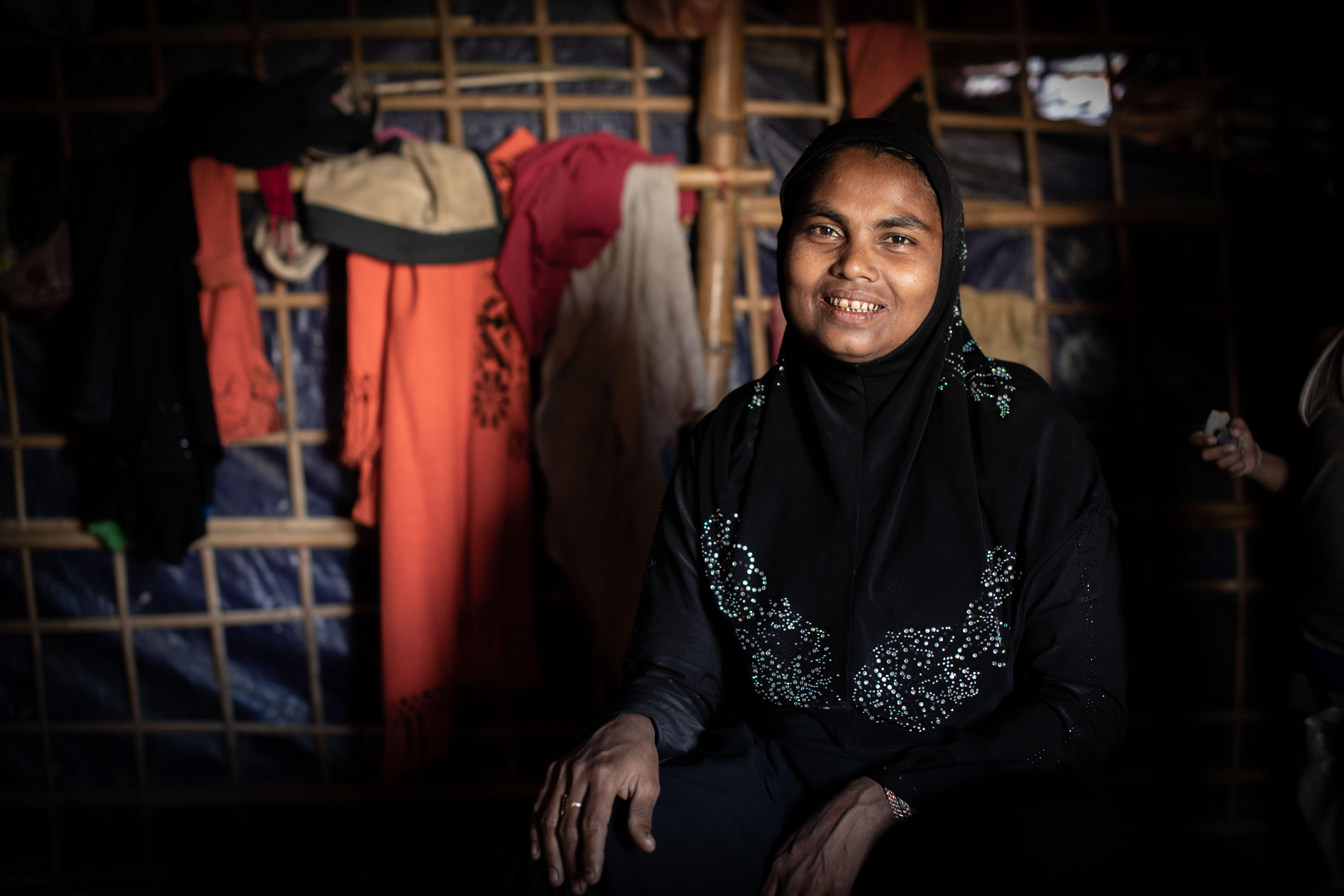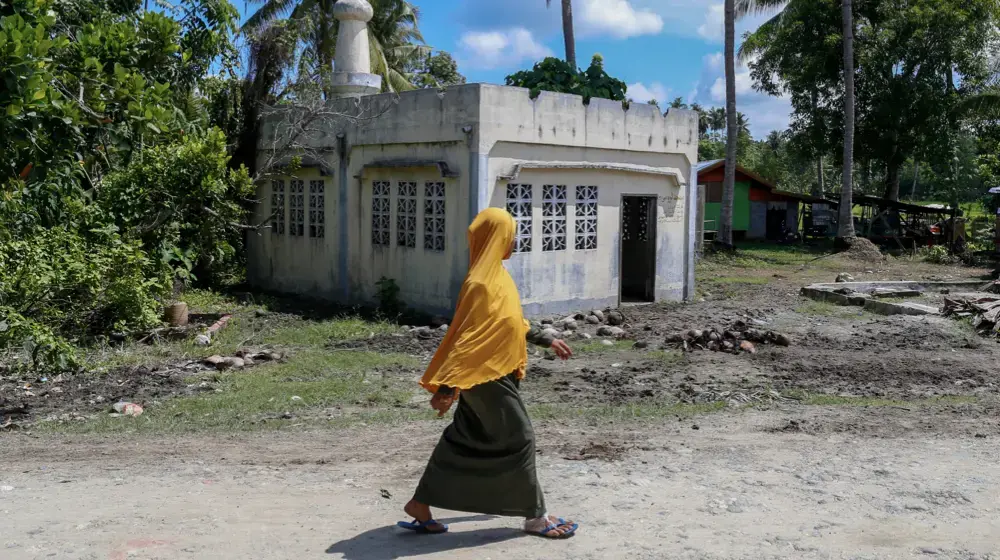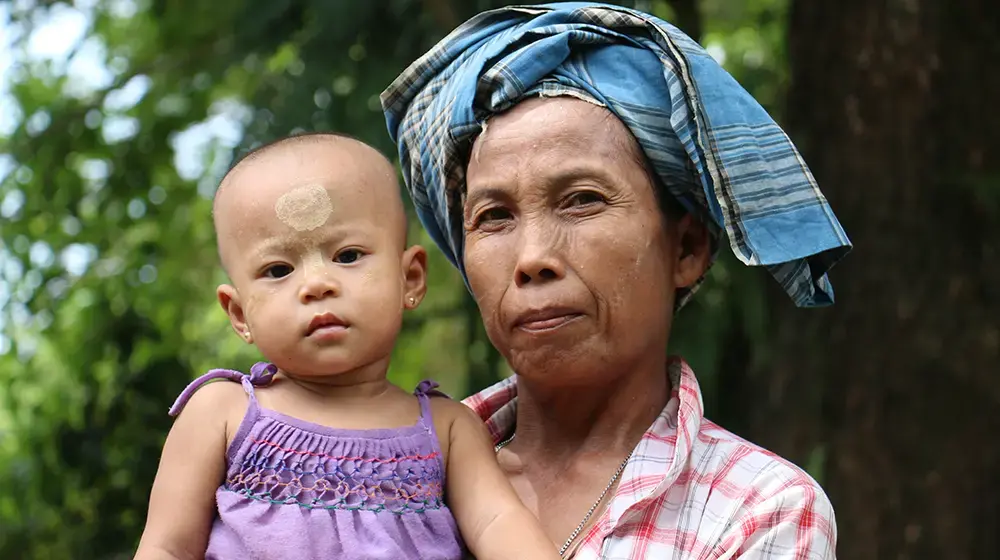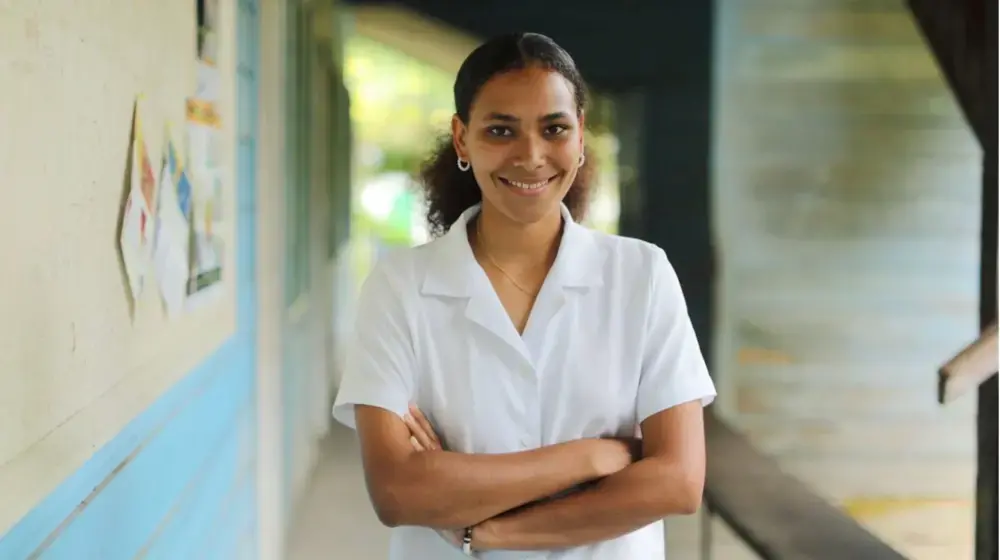The best way to avoid getting COVID-19, and the best way to avoid it spreading, is to stay at home and practice physical distancing. But for many women, COVID-19 is just one of the dangers they need to be prepared for.
The United Nations Population Fund, UNFPA, has been researching and supporting ways to save the lives of women and their babies and working with governments and health authorities to develop the best systems to stop women from dying in childbirth. Having a skilled midwife present during birth dramatically decreases the likelihood of complications and death. The other simple way to save lives is for women to have regular antenatal check-ups - ideally eight times before they give birth - to make sure everything is going well.
With health systems overwhelmed in many places due to COVID-19, clinics are no longer the safe places they used to be. Pregnant women fear that they increase their risk of catching COVID-19 if they go to the clinic for their check-up, and around the world, many women are choosing not to go. Worldwide shortages of protective equipment mean health workers are scared as well - they have a right to a safe workplace, and amid the current pandemic, such protection cannot always be guaranteed.
In Indonesia, the capital Jakarta is considered the epicentre of the pandemic, but UNFPA Programme Specialist Dr Imma Aryanty says that could change.
“One of the major challenges here is a lack of information. We have some understanding of the scale of the crisis in Jakarta, but in rural areas, the information is only coming in slowly. We are conducting an assessment to determine how sexual and reproductive health services have been impacted by COVID-19. That will enable us to direct the best response,” she said.
The Indonesian Midwives Association is one of the largest in the world, with hundreds of thousands of members. They are doing their best to collect information from across the country, and already they are seeing worrying trends.
“Many of the midwives are afraid to provide services because they don’t have optimal protective equipment. "The pregnant women they work with are also avoiding seeking care to the facilities for a pregnancy check," Dr Aryanty noted.
UNFPA’s Sexual and Reproductive Health Regional Adviser Catherine Breen Kamkong said the decisions women have to make are incredibly tough, but that every effort is being made to ensure women can still access the services they need.
“There are always exceptions, but according to all the research done so far on COVID-19, pregnant women represent a low-risk population for the virus. Limited data are available on COVID-19 in pregnancy, but the studies published to date do not show an increased risk of severe disease in late pregnancy or substantial risk to the newborn. Information on the impact of COVID-19 on early pregnancy outcomes remains unavailable. There are currently no data suggesting an increased risk of miscarriage or early pregnancy loss in relation to COVID-19.” she explained.
“Indeed, the risks associated with childbirth at home without the care of a skilled midwife and the necessary medicines that we need in case of emergency are far greater. Evidence shows that for pregnant women to have the best chance of a successful birth and a healthy baby, they should still give birth in a clinic with a skilled midwife.”
An added complication for women in a number of countries is the strong enforcement measures in place, creating an additional disincentive to seek the healthcare that is recommended. Leaving the house can be a risk in itself.
Isolation is causing problems even in countries that have not experienced major outbreaks. Lao People’s Democratic Republic reported its first positive test on April 1, and the number of those laboratory-confirmed with COVID-19 is still relatively low.
However, the pandemic has driven tens of thousands of people who had been working in Thailand and Viet Nam back home. As a precaution, they are being quarantined in camps. UNFPA in Lao PDR is working with the Government and the Swiss Red Cross to determine how many of those workers are pregnant - already the numbers coming in indicate there could be hundreds.
Programme Coordinator at UNFPA Lao PDR, Sally Sakulku, said the major issue in these early stages was getting accurate data on these women.
“We do not have a strict lockdown here so far, and most women are still accessing services as normal,” she said. “However, for those women in quarantine, we are advocating very strongly to ensure that they get the help they need. We don’t want women giving birth in the quarantine camp without the right medical care.”
The biggest challenge is to ensure adequate preparation. The full extent of infection isn’t known, and while the border with Thailand remains closed to anyone (as of this writing) without a medical certificate demonstrating a negative test, there is always a risk of transmission in the community.
“Although the confirmed number of cases are relatively low in Lao PDR, we still need to maintain alertness and vigilance. That’s why we’re procuring as much protective equipment as we can, just to try and ensure that the midwives stay safe and can continue their essential work,” Sakulku said.
In some places, clinics will likely be too overwhelmed to be able to handle COVID-19 cases, let alone routine healthcare. That is why UNFPA is using the technology that is available to develop telehealth services and other innovative means of providing care. UNFPA advises that where the risk of COVID-19 infection is very high, it may be safer to offer pregnant women an alternative schedule for antenatal care with some visits done through telephone or video contact, as feasible.
This has already been trialled in Indonesia. Breen Kamkong explained: “Wherever possible the current WHO schedule of eight antenatal contacts should be provided and maintained. Where technology and services are available, some of these contacts may be a remote antenatal contact. The new UNFPA antenatal care guidance offers practical advice on which contacts might best be undertaken face-to-face and which might suit a remote contact, and guides midwives on how to deliver that.”
“We provide women in the early stages of pregnancy with the Maternal and Child Health Handbook and explain very carefully how to monitor their pregnancy. If everything is going well when it comes time for their second, third and fourth checkup, they can simply call the midwife rather than attending the clinic,” added Dr Aryanty.
“It’s not ideal, but it does reduce the risk of coronavirus infection significantly, both for the woman and the health worker.”
---------------
UNFPA, the UN's sexual and reproductive health agency, works in Lao PDR and over 150 other countries globally to achieve zero maternal deaths, zero unmet need for family planning, and zero gender-based violence and other harmful practices against women and girls - a vision enshrined in the Programme of Action stemming from the landmark 1994 International Conference on Population and Development (ICPD).
To support our lifesaving work amid the COVID-19 pandemic, including safeguarding pregnant women and new mothers, as well as the midwives who support them, visit https://donate.unfpa.org/th-en/covid-19





